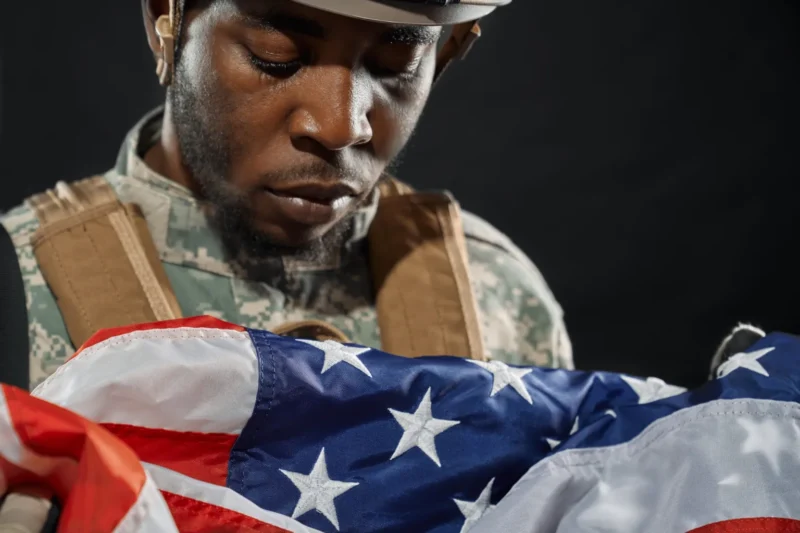Black veterans with PTSD may face a higher risk of rehospitalization after a stroke
Share
Explore Our Galleries
Breaking News!
Today's news and culture by Black and other reporters in the Black and mainstream media.
Ways to Support ABHM?
By American Heart Association News

Black veterans with post-traumatic stress disorder were more likely to be rehospitalized after a stroke than White veterans and Black veterans without PTSD, a new study has found.
The study, which reviewed data from more than 93,000 veterans, was published March 14 in the American Heart Association journal Stroke.
Previous studies have shown that people with PTSD have a higher risk of heart disease and stroke and that they have strokes at younger ages than the general population. Studies also have shown that Black adults have a higher risk of rehospitalization after stroke. But this is one of the first studies to analyze how PTSD affects what happens after a stroke.
[…]
“We were expecting to see PTSD playing a role in all veterans, so we were surprised at the difference between African American and white veterans in both the impact of PTSD and other risk factors,” Dr. Chen Lin, the study’s senior author, said in a news release.
Using a Veterans Health Administration database, the researchers looked at what happened to veterans with PTSD after they had a stroke. “The main goal was to determine whether those with PTSD and stroke have different risks for stroke recurrence or hospital readmission and also to see whether race affected readmission rates,” said Lin, a staff neurologist at the Birmingham Veterans Administration Medical Center and an associate professor of neurology at the University of Alabama at Birmingham.
Members of the Black community can also develop PTSD from racism and school shootings.











Comments Are Welcome
Note: We moderate submissions in order to create a space for meaningful dialogue, a space where museum visitors – adults and youth –– can exchange informed, thoughtful, and relevant comments that add value to our exhibits.
Racial slurs, personal attacks, obscenity, profanity, and SHOUTING do not meet the above standard. Such comments are posted in the exhibit Hateful Speech. Commercial promotions, impersonations, and incoherent comments likewise fail to meet our goals, so will not be posted. Submissions longer than 120 words will be shortened.
See our full Comments Policy here.